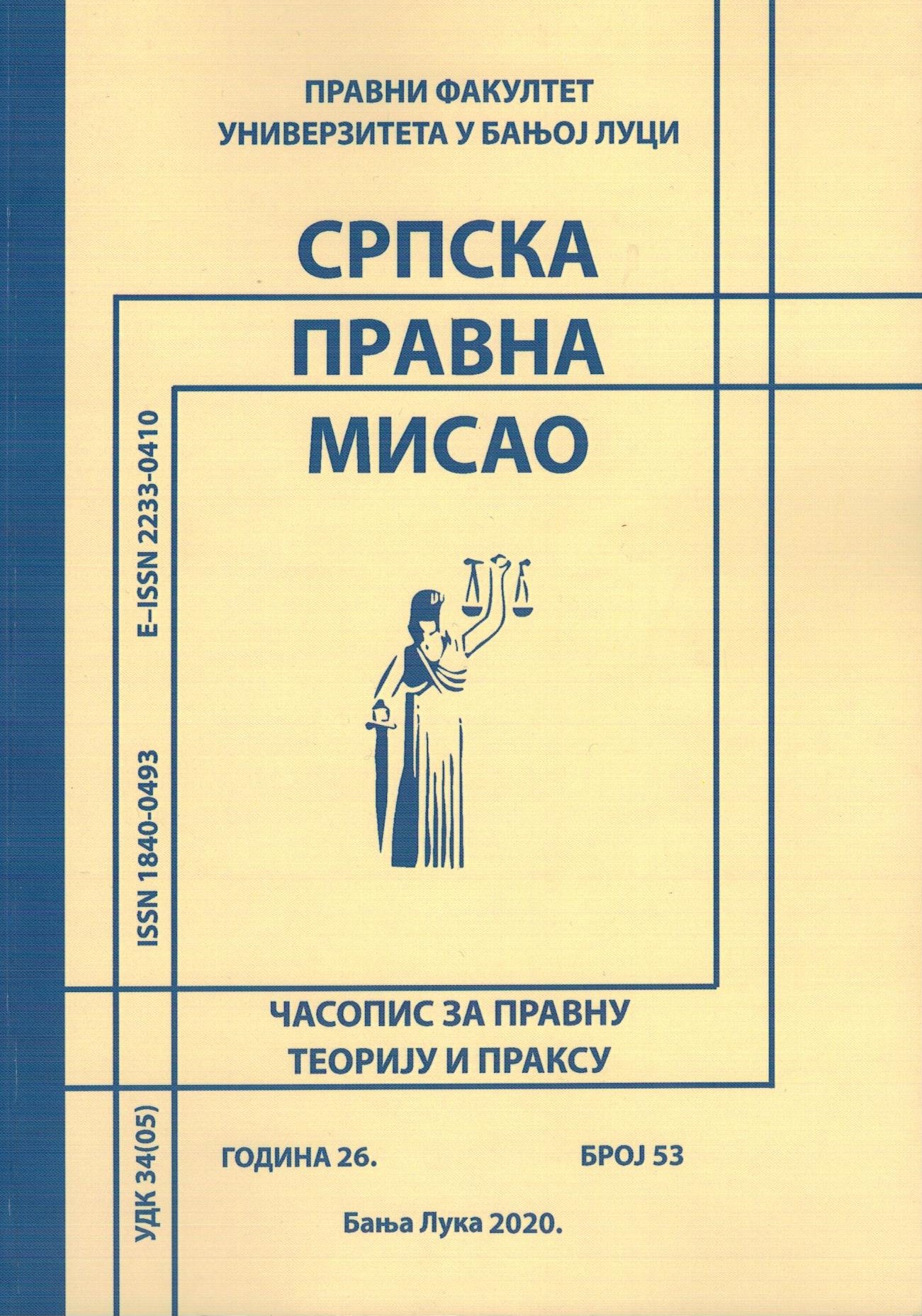
We kindly inform you that, as long as the subject affiliation of our 300.000+ articles is in progress, you might get unsufficient or no results on your third level or second level search. In this case, please broaden your search criteria.


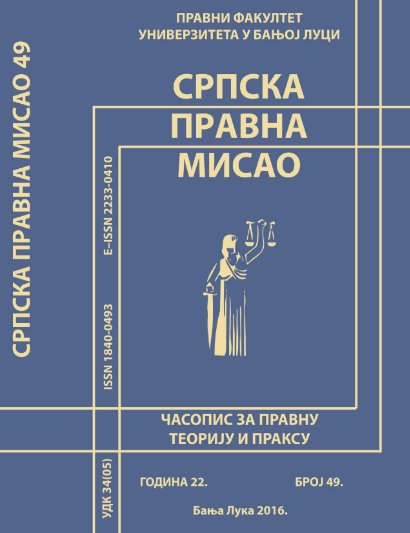

Review of: Др Саша С. Кнежевић: КРИВИЧНО ПРОЦЕСНО ПРАВО, ОПШТИ ДИО, Центар за публикације Правног факултета Универзитета у Нишу, Ниш, 2015, стр. 376.
More...
The paper analyses the establishment and organization of a new judicial body for patent litigations in Europe – Unified Patent Court (UPC). After introductory notes with regard to attempts to introduce unitary patent protection system in the European Union, the first part of the article respresnts an overview to the history of establishment of the unified patent litigation system in Europe. The second part analyses the legal bases of the Unified Patent Court. The third part of the article is dedicated to the organization of the Unified Patent Court. The special attention is devoted to appointment of UPC judges, UPC structure and languages of the proceedings before the Unified Patent Court.
More...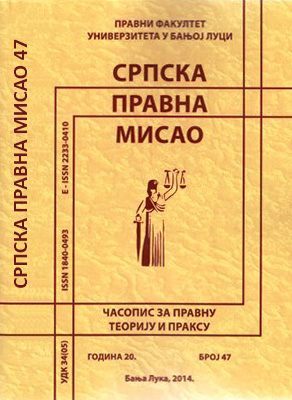

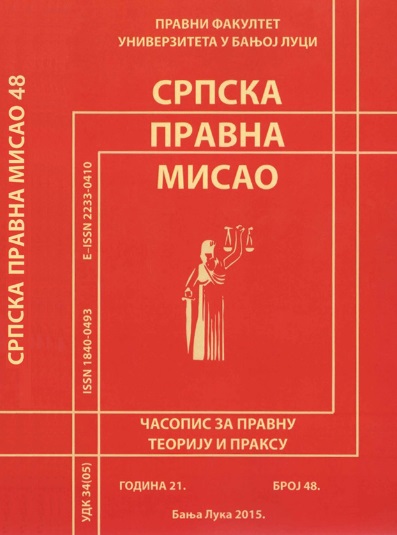

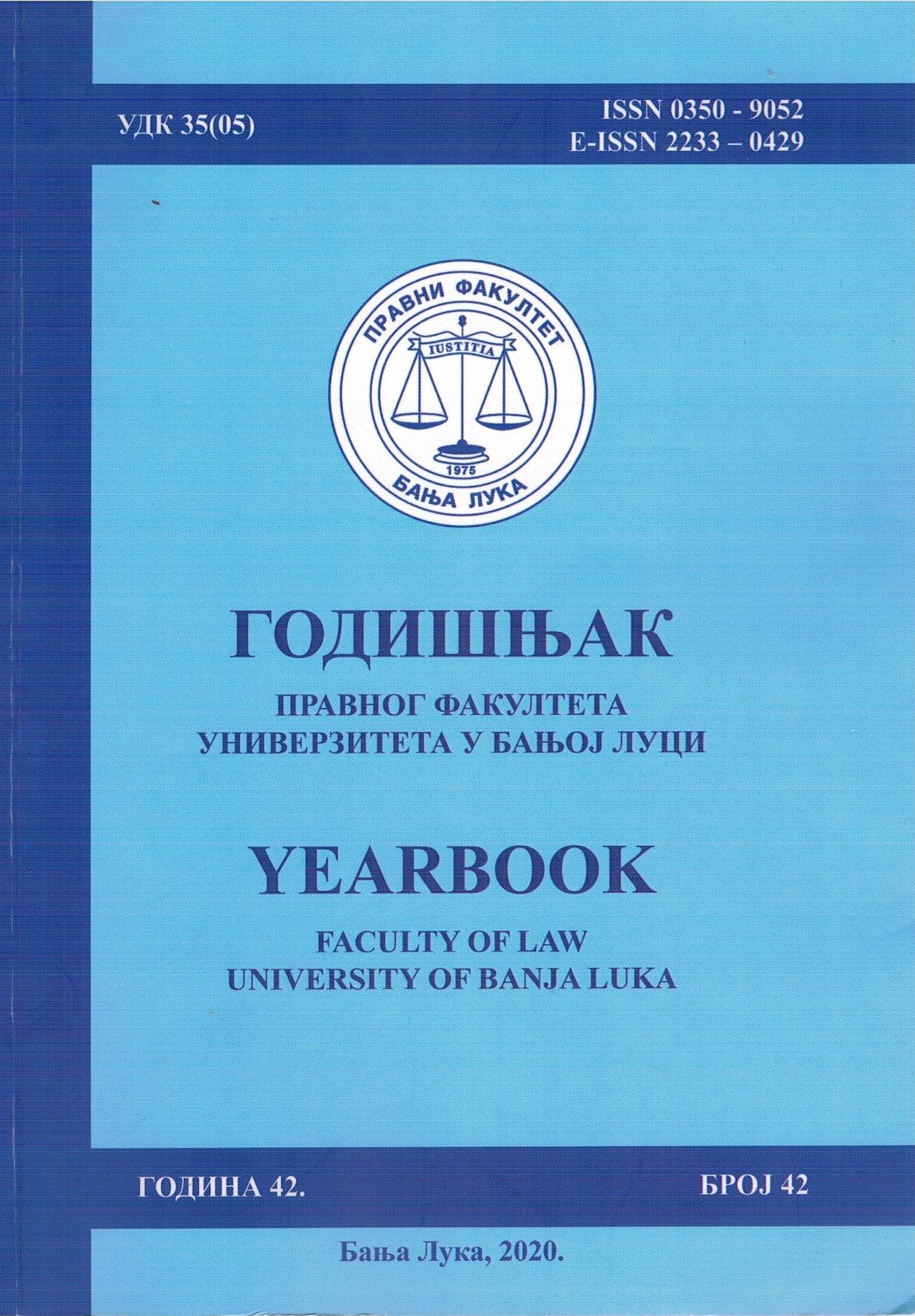
Enforcement proceedings as a procedure of forced realization of claims should be normatively, ie legally conceived in such a way as to ensure the forced realization of claims in the most efficient way. This procedure should provide legal entities as creditors with legal protection, which in the enforcement procedure received its full and final materialization. To this end, the legislator must take into account that the Law on Enforcement Procedure must not be viewed outside the context of the legal system as a whole, which means that the law cannot be enacted or interpreted and applied in isolation from other norms within the legal system. In other words, only the essential unity of the norms of executive procedural law with the norms of the Law on Civil Procedure that are appropriately applied in enforcement proceedings, and the norms of substantive regulations referred to by the Law on Enforcement Procedure with regard to substantive presumptions and consequences of enforcement, can be said about a system that provides efficient and complete legal protection. In this regard, in this paper we will critically look at certain provisions of the Law on Enforcement Procedure of the Republic of Srpska, and the provisions of other regulations relevant to the enforcement procedure, pointing out the doubts faced by the executive courts in interpreting and applying them. the aims of their reexamination and giving de lege ferenda proposals
More...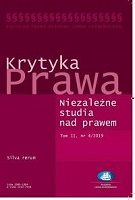
The regulations introduced by the Act of November 4, 2022 amending the Act on the National Court Register, the Act on the Code of Civil Procedure and the Act on the Code of Commercial Companies constitute the first stage of implementation of Directive 2019/1151 of the European Parliament and of the Council (EU) of June 20, 2019. These regulations are primarily intended to facilitate the functioning of entrepreneurs in the sphere of economic turnover. Despite the broad scope of the regulations of the so-called „company law package” in Directive 2019/1151, it should be recognized that the implementation law itself is not revolutionary. This is due to the fact that most of the regulations contained therein are already successfully applicable in Poland, while the changes introduced are primarily aimed at organizing the Polish legal system and facilitating access to information about entrepreneurs. The purpose of this article is to present the statutory changes consisting in the implementation into the Polish legal order of the regulations included in the so-called „package of company law” and the scope of implementation, as well as an attempt to assess the rationale for their introduction.
More...
This article discusses the independent state legislature theory, which has been the subject of interest of an ever-growing group of American constitutionalists in recent years. This theory deals primarily with state legislatures’ power – derived directly from the U.S. Constitution – to regulate federal elections. According to its underlying premises, this fact results in the absence of any tools to control the law enacted in this area as to its compliance with a given state’s constitution. Neither the electoral administration nor the state courts can interfere with these laws. They would therefore be subject to federal courts’ review only. However, the Supreme Court, in applying the political questions doctrine, has excluded many election law matters – other than those concerning funding – from its jurisdiction. As a result, such an important part of state law – one concerning fundamental political rights – would remain without any supervision inherent in modern democracies.
More...
This article discusses the independent state legislature theory, which has been the subject of interest of an ever-growing group of American constitutionalists in recent years. This theory deals primarily with state legislatures’ power – derived directly from the U.S. Constitution – to regulate federal elections. According to its underlying premises, this fact results in the absence of any tools to control the law enacted in this area as to its compliance with a given state’s constitution. Neither the electoral administration nor the state courts can interfere with these laws. They would therefore be subject to federal courts’ review only. However, the Supreme Court, in applying the political questions doctrine, has excluded many election law matters – other than those concerning funding – from its jurisdiction. As a result, such an important part of state law – one concerning fundamental political rights – would remain without any supervision inherent in modern democracies.
More...
The subject of the study are changes in the statutory form of cash benefit resulting from the amendment to the Penal Code of 5 August 2022. The aim of the article is to verify the hypothesis, according to which the essence of the introduced regulations is to strengthen the position of a pecuniary benefit as a repressive and compensatory measure. The adopted solutions mean that the new model of pecuniary benefits breaks away from the political and criminal assumptions that determined the normative shape of this penal measure in the original version of the Criminal Code of 1997.
More...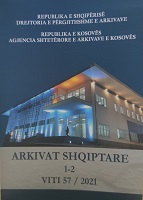
In Kosovo, which by force remained part of the former Serbo-CroatianSlovenian Kingdom (1918-1929) and later under the Yugoslav Kingdom (1929-1941), residents of the Muslim denomination, all issues from the personal status domain, family law, inheritance law and issues related to the waqfs institutions (legates), have resolved through the rules of Sharia law. Therefore special state bodies were organized - the Sharia courts, which, in fact, were part of the state courts and had similarities with them. These courts were also established with the same system in other countries with Muslim population, such as Macedonia, Montenegro and Bosnia and Herzegovina. There were district or first instance Sharia courts and second instance courts or Supreme Sharia courts. The application of Sharia law in Kosovo, since the beginning of the Ottoman rule, and even between the two World Wars, has not been the subject of study of our scholars until today, although this right has been applied for a long time and although there are still a considerable number of documents related to this field. The Kosovo Archives alone contain some fonds with thousands of documents produced by Sharia court offices, which operated in Kosovo between the two World Wars, and such documents have been little researched and not considered. Our paper therefore aims to present some data from these documents and other sources on the role and activity of these courts, as well as to present the fonds of these courts that are preserved in the Archives of Kosovo.
More...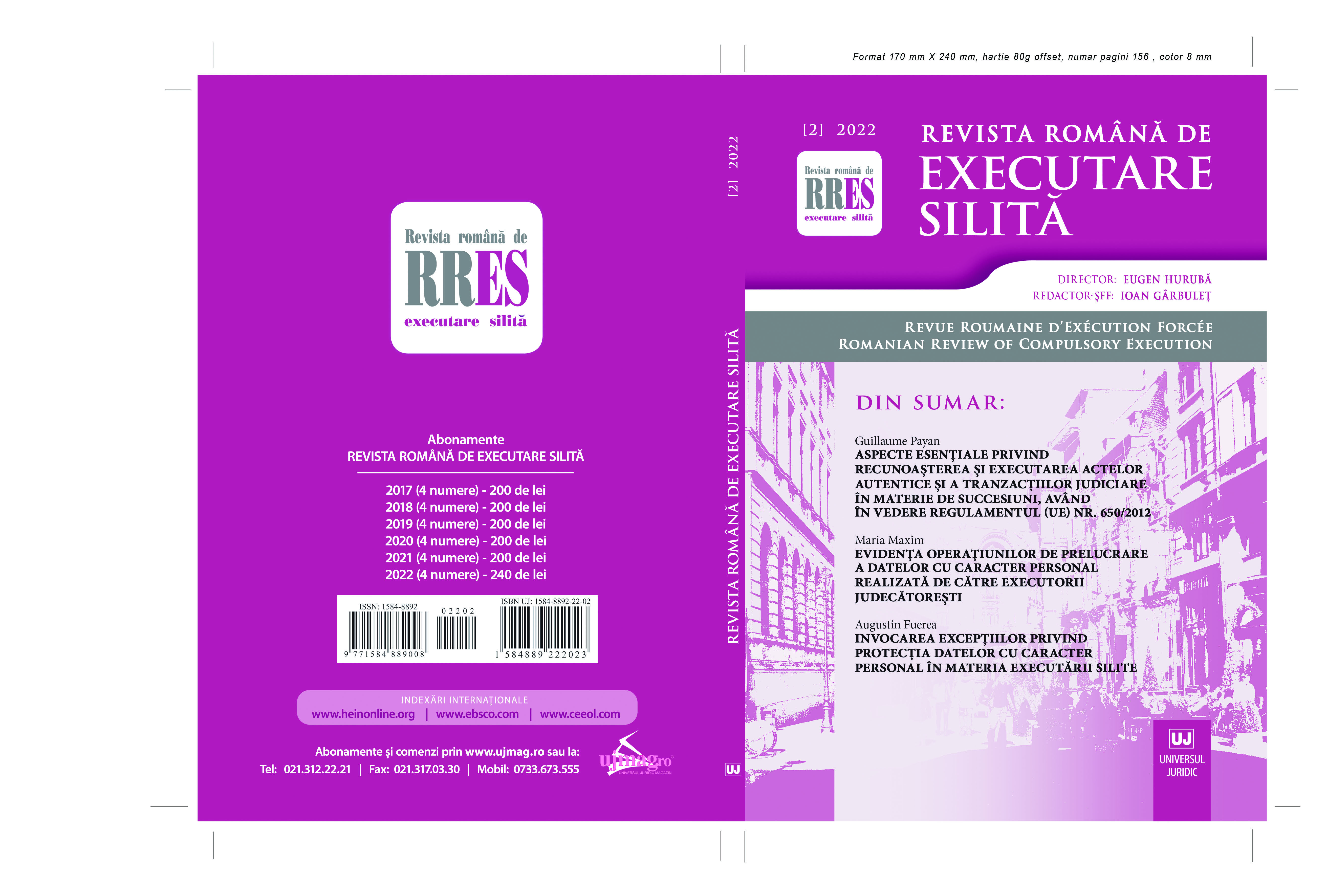
Decision No 6 of 6 April 2022 of the High Court of Cassation and Justice of the European Union, the panel competent to judge the appeal in the interests of the law
More...
Decision No 3 of 7 February 2022 of the High Court of Cassation and Justice of the European Union, the panel competent to judge the appeal in the interests of the law
More...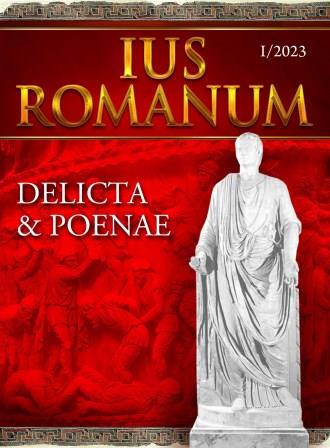
The article addresses the issue of criminal and civil liability of legal persons from the point of view of classical Roman jurists. The issue was raised in relation to crimes committed by municipal rulers. Pursuant to D. 4.3.15.1; D. 4.2.9.3 and D. 43.1.64.4. the jurists distinguished between the criminal responsibility of the decuriones perpetrators of the crime and the civil responsibility of the municipes for the enrichment of the civitas for these crimes.
More...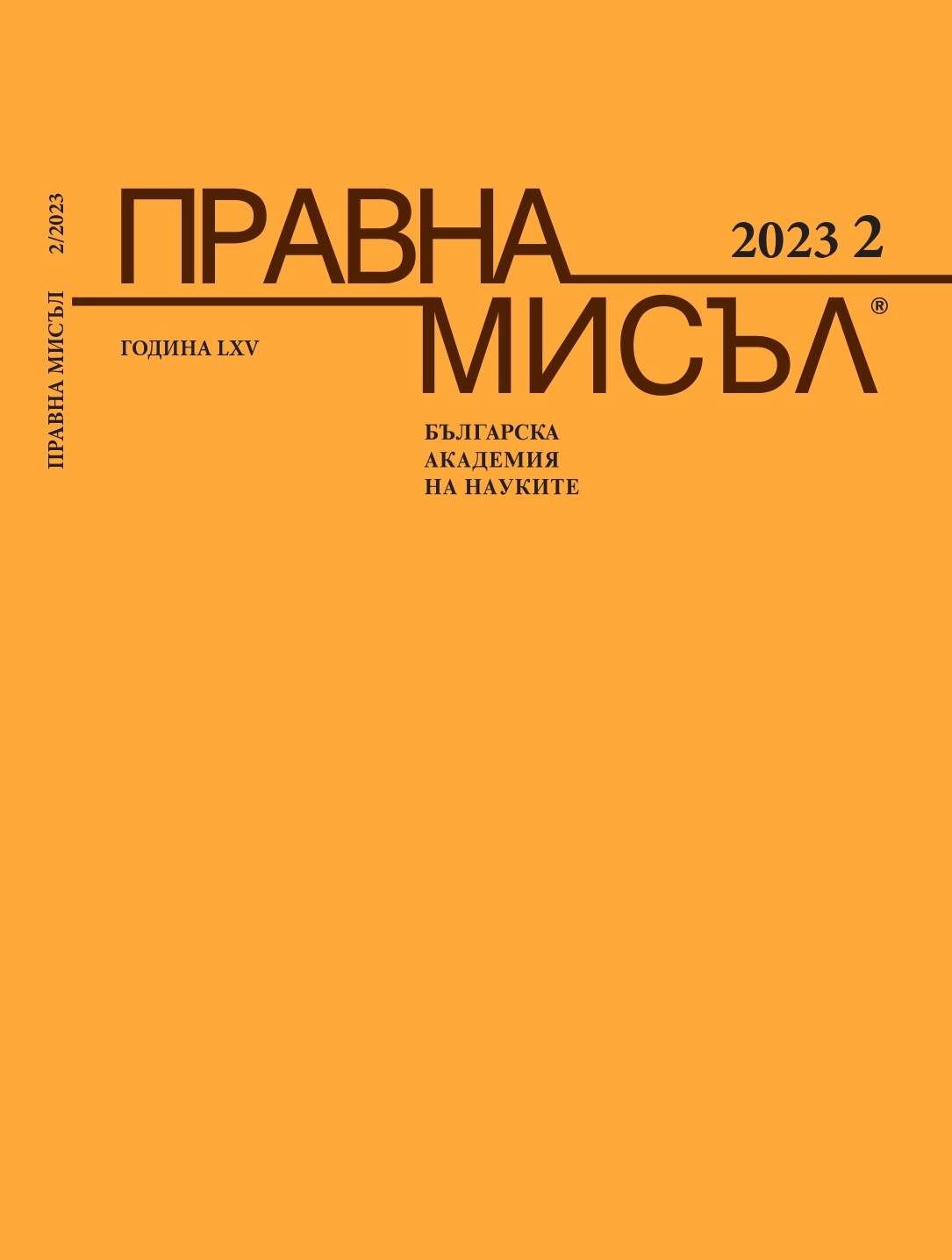
The study examines some problematic aspects of the charging decision and procedure in the pre-trial phase of the Bulgarian criminal procedure. More specifically, the following issues are discussed: the legal nature and content of the report provided for in art. 219 (1) of the Criminal Procedure Code (CPC), as well as the method of reporting; the exact moment of constituting the defendant – before or after the execution of the investigative act directed against him/her under art. 219 (2) CPC; the prerequisites for bringing charges pursuant to of art. 219 (2) CPC; the requirements of the European Court of Human Rights(ECHR) as to the first moment in which criminal charge is considered to exist and the compliance of the Bulgarian legislation with these requirements.
More...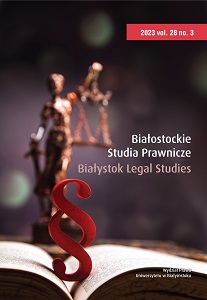
The prevailing view in international jurisprudence is that no one can claim compensation for the fact of being alive. This view was developed based on so-called ‘wrongful life’ cases, in which, due to medical malpractice, parents were deprived of the opportunity to perform a legally permitted abortion, resulting in the birth of a disabled or unwanted child. A new chapter in this category of claims was opened by the case under review. The German Supreme Court took up what, in view of the ageing of Western societies, is a very topical and socially difficult issue of a son’s claim for damages for keeping his father alive. The ruling concerns a special category of civil claims so far not commented on in Polish literature or jurisprudence – ‘wrongful survival’. The German Supreme Court rejected the possibility of claiming compensation under German law for prolonging human existence, even if it involved suffering. Much of the reasoning of the Court is also applicable under Polish law. However, depending on the interpretation of the norms concerning the patient’s right to self-determination, the possibility of partial compensation for the costs of unlawfully keeping someone alive also seems to be acceptable under Polish law.
More...